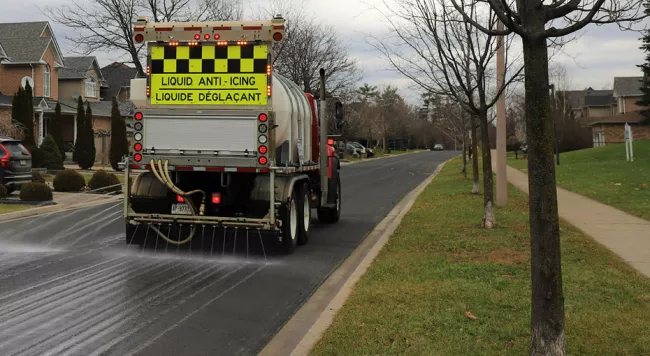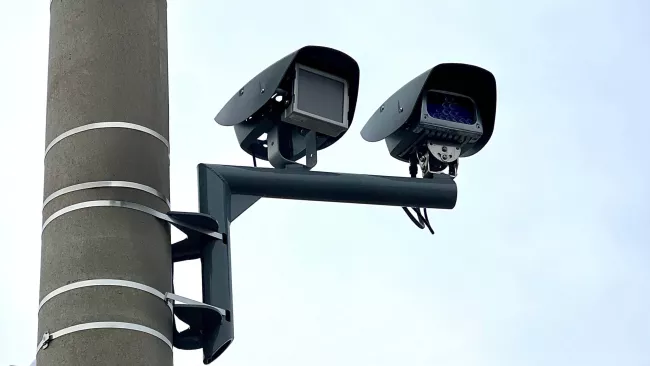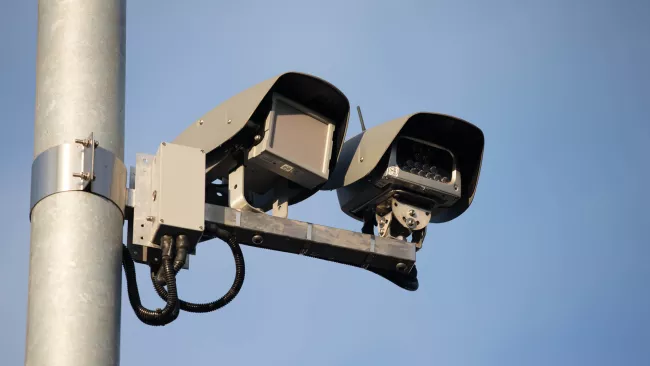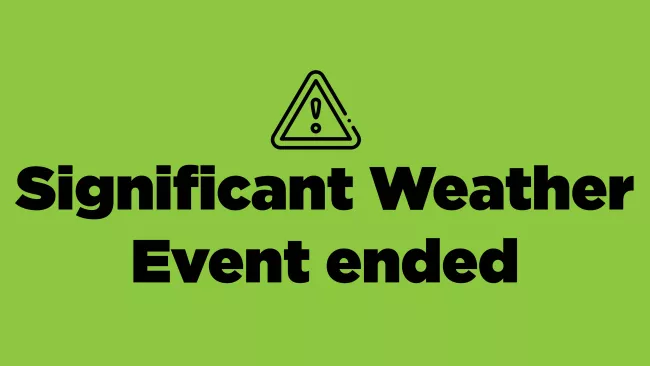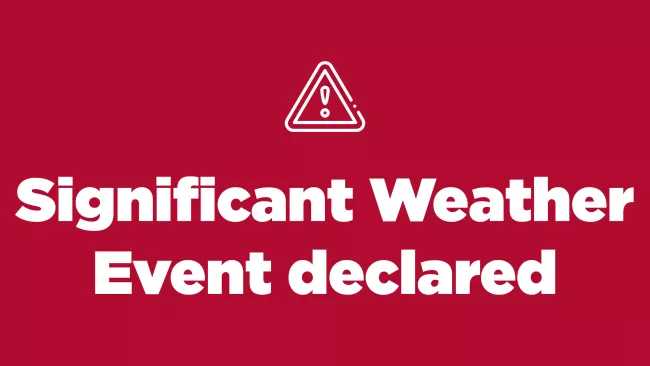Everything you need to know about Vaughan’s winter operations
Plowing, salting, anti-icing, windrow-clearing and more!
More snow is on the way to Vaughan, and the City of Vaughan’s crews are ready! Whether it’s addressing ice on roads or clearing snow from local streets, paths and sidewalks, the City continues to provide residents with efficient, reliable and high-quality winter maintenance services.
With a fleet of more than 230 vehicles, our winter maintenance crews are ready for the Canadian winter with anti-icing, salting, plowing and windrow clearing along more than 2,200 lane-kilometres of roads and 1,200 kilometres of sidewalks and park walkways.
Here are some highlights of the City’s winter operations:
- Anti-icing: Before a snowfall, the City prepares roads by spraying brine, a liquid made of rock salt and water. It is sprayed on the road surface in anticipation of freezing temperatures to prevent the formation of black ice or in advance of a winter snow event. The liquid brine works immediately as a barrier, so precipitation doesn't stick to the road and slippery conditions are avoided.
- Salting: During a heavy snowfall or major storm, the City will salt and clear sidewalks in main public areas before moving to residential areas. Residential streets are treated within 12 hours after a snowfall has ended. Services on major roads in Vaughan, such as Bathurst Street, Dufferin Street, Keele Street and Major Mackenzie Drive, are maintained by York Region. For a full list of regional roads, visit york.ca/roads.
- Snowplowing: Plowing begins as soon as five centimetres (two inches) of snow have accumulated on public roads and sidewalks. The City aims to plow all roads within 16 hours after a snowfall has ended. Main roads are plowed first within four hours to keep them clear for emergency and transit vehicles before moving to residential areas. Sidewalks are cleared within 48 hours after a snowfall has ended. The priority is sidewalks on main roads, followed by sidewalks on residential side streets and park walkways.
- When clearing courts, operators pile snow in the middle to allow for safe passage of emergency vehicles and waste collection crews. These snow piles will grow as the snow continues to come down in Vaughan. Staff will monitor the heights of each pile and take action as required.
- Since laneways, like those streets that are found behind townhomes for example, tend to be quite narrow and often have garage entrances on both sides, large plowing machines are unable to get through. Smaller salting and/or snow clearing machines are the only ways to deal with large volumes of snow in these laneways, which means there may be longer wait times.
- Windrow clearing: The City offers a windrow-clearing service to residents. Within four hours after the plow has passed, the residential windrow-clearing machines will clear a portion of the home’s driveway entrance to allow a car to pass through. The service does not clear windrows left by sidewalk plows and does not clear hardened snow, ice or the entire driveway.
With the use of artificial intelligence (AI) technology, known as the Maintenance Decision Support System, the City leverages weather forecasts, data from actual road conditions and Vaughan’s operating best practices to recommend treatment for the City’s roads and sidewalks. Since adopting this innovative AI technology in 2020, the City has reduced salt usage by 30 per cent and saved approximately $400,000 annually. This has positively impacted the environment, reflects the City’s commitment to fiscal responsibility and enhances the citizen experience.
To report non-emergency winter maintenance service requests, visit Service Vaughan. For more information on the City’s winter operations, visit vaughan.ca/snow.
For the latest updates, subscribe to Vaughan News and follow the official corporate channels on Twitter, Facebook, Instagram and LinkedIn.

